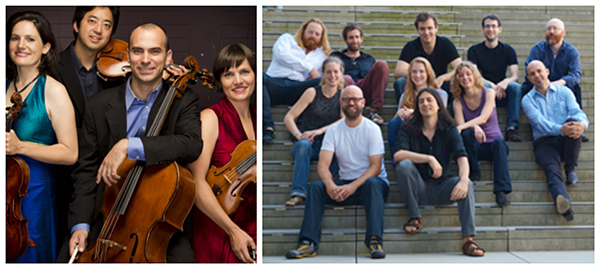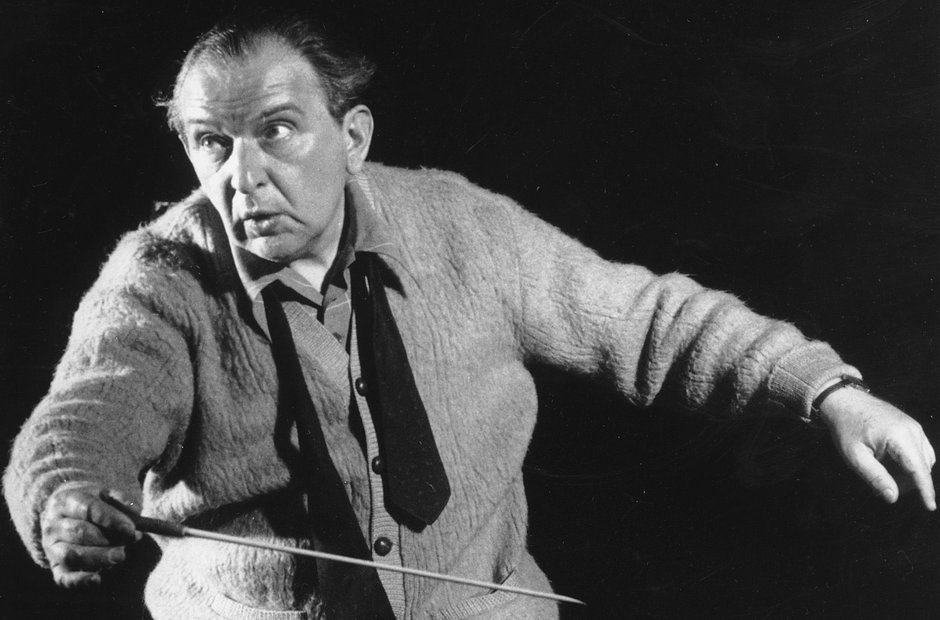by Jarrett Hoffman

•Tonight: ACRONYM at Oberlin, Jupiter Quartet at CCMS
•Oberlin announces vacancy in the composition department
•Almanac: Barenboim enters, Reiner leaves
HAPPENING TODAY:
At 7:30 pm, you have the choice between two premiere string ensembles with roots in Northeast Ohio, performing on two of the area’s premiere concert series.
Over at Plymouth Church under the banner of the Cleveland Chamber Music Society, the Jupiter Quartet will play music by Charles Ives, Florence Price, Steven Andrew Taylor, George Walker, and Johannes Brahms. (ClevelandClassical.com’s Daniel Hathaway will give a 6:30 pre-concert lecture.)
And at Warner Concert Hall, the Oberlin Artist Recital Series will present the Baroque string band ACRONYM in a program titled “Dreams of the Wounded Musketeer” exploring “a military trumpeter’s final moments as he relives the swirling music of his childhood.”
Read an article by Daniel Hathaway previewing both concerts here. Get tickets here for CCMS and here for Oberlin.
JOB LISTING:
Oberlin Conservatory is accepting applications for a tenure-track position in the composition department beginning next school year. Review of applications begins on December 5. More details here at Musical America’s Career Center.
TODAY’S ALMANAC:
This date in music history includes the birth of one famous pianist-conductor, and the passing of another.

That announcement came on the same evening he received the Gramophone Lifetime Achievement Award. Fitting for a career that has included music directorships in no short supply (Berlin State Opera, Staatskapelle Berlin, Chicago Symphony, Orchestre de Paris, and La Scala), seven Grammy Awards, and the co-founding of the West–Eastern Divan Orchestra, an ensemble that has been recognized by the United Nations for its aim of promoting understanding between Israelis and Palestinians.
As Barenboim told The Guardian in an interview in 2008, it would not be quite correct to say that the Divan aims to bring peace to the Middle East.
It’s not going to bring peace, whether you play well or not so well. The Divan was conceived as a project against ignorance. A project against the fact that it is absolutely essential for people to get to know the other, to understand what the other thinks and feels, without necessarily agreeing with it.
Watch Barenboim and the Divan give a live performance of Beethoven’s Ninth Symphony here, from 2006.

Born in Budapest, Reiner studied piano with Bártok at the Franz Liszt Academy, and worked with Richard Strauss during early conducting engagements in Europe. After moving to the U.S. in 1922, he became principal conductor of the Cincinnati Symphony, taught at the Curtis Institute of Music (among his students was Leonard Bernstein), led the Pittsburgh Symphony for a decade, and spent a handful of years as principal conductor at the Metropolitan Opera.
But his ten years in Chicago are considered the height of his career. That included a stamp of approval from Igor Stravinsky, who was not exactly famous for doling out kind words, and who described the orchestra under Reiner as “the most precise and flexible orchestra in the world.”
Listen to that orchestra play Bártok’s Concerto for Orchestra here.



